#83 Hullbot
Roomba for ships
Read time: 5 minutes
Hi, I’m Javi Gascón.
This is Climate Tech Distillery, a newsletter where I talk about one specific climate tech company every week.
Today we’ll distill a company that’s making autonomous underwater robots to clean ship hulls for fuel savings and ocean health: Hullbot 🇦🇺
Shoutout to my friend Hugo Rauch at New Wave, the only podcast you need to keep up with Europe’s climate-tech VC world.
Available on Substack, YouTube, Apple Podcasts, and Spotify.
Want to sponsor Climate Tech Distillery? Here’s all the info.
What Problem Does Hullbot Tackle?
They tackle the problem of “biofouling” on ship hulls, which leads to significant operational and environmental challenges. What is biofouling you ask?
It’s the undesirable accumulation of microorganisms like algae or small animals on submerged surfaces.
1. Fuel Waste: Biofouling increases drag, forcing ships to burn over 20% more fuel to maintain speed. This raises costs and emissions unnecessarily.
2. Operational Costs: Traditional hull cleaning requires ships to dock or use divers, making it expensive and disruptive. Given the scheduling headaches and lost revenue from downtime, most vessels only clean hulls a few times per year.
3. Coating Damage: Aggressive cleaning methods used to remove heavy biofouling buildup can damage protective coatings, requiring more frequent and expensive reapplication.
4. Microplastics: Traditional antifouling paints used to combat biofouling release microplastics and toxic chemicals into the ocean as they wear away.
5. Limited Visibility: Fleet operators lack regular data on hull condition and performance degradation, making it difficult to optimize maintenance schedules and identify problems.
Product / Service 📦
They made small underwater autonomous robots for cleaning and inspecting ship hulls. They’re awesome:
24/7 Operations: Hullbot works around the schedule of the boat. Whenever the boat is anchored or in port, it just starts proactively cleaning. The set-up is simple, ensuring no service disruptions.
Gentle and Safe: The gentle brushes are effective on all coatings. Cleaning speed, pressure and brush types are adjusted to suit the vessel.
Proactive Prevention: Instead of waiting for heavy fouling buildup, Hullbot cleans hulls frequently (even weekly) to remove organisms early when they’re easiest to eliminate. No need for toxic antifouling paint.
Manoeuvrability: The robot can access hard-to-reach areas like propellers and niche zones that divers struggle with.
Environmental Compliance: Their technology has an outstanding environmental performance. It captures debris during cleaning and complies with biofouling management regulations worldwide.
Vessel Intelligence: Hullbot provides regular data on hull condition and vessel performance. Fleet operators have continuous visibility into their assets.
Market 🌐
The global hull cleaning robot market was valued at approximately $60 million in 2024 and is projected to reach $1.32 billion by 2033, growing at a crazy CAGR of 42%.
It makes sense. Fouled hulls cost the shipping industry $30 billion per year in wasted fuel, and with stricter environmental regulations on marine biofouling and ship emissions, fleet operators are seeking cleaner, more efficient alternatives.
Other Key Players
HullWiper 🇬🇧: Provides remotely operated vehicles (ROVs) that use high-pressure water jets to remove biofouling without damaging coatings.
Greensea IQ 🇺🇸: The first robotics-as-a-service subscription model for ship hull cleaning, delivering autonomous robots that remove microfouling before it matures.
Founding Story 🦄
Hullbot was founded in 2014 by Australians Tom Loefler and Karl Watfern. Loefler, an industrial designer with a background in boat building, first developed the concept as his major university project.
The breakthrough came when Loefler realized that preventing biofouling was far more effective than trying to remove it after buildup. After extensive research and customer interviews, Loefler and Watfern began building autonomous underwater robot prototypes in a garage.
Iterative development, participating in accelerator programs, angel investing and winning big design awards helped them grow at the beginning. They even beat Hyundai and Tesla at the “Australian Good Design Award of the Year”.
They’ve now delivered over 1,000 paid hull cleans for ferry operators and small cruise vessels globally and in November 2025 they raised a AUD $16 million Series A round.
Top Impact Stats 📈
Already avoided 3,600 tonnes of CO₂ emissions.
Hullbot delivers average fuel savings of 15% and up to 26%.
Their robotic cleaning limits the spread of invasive marine species, which are linked to 80% of biodiversity loss from shipping biofouling.
Whenever you’re ready, there are 2 ways I can help you:
Scale and optimize your climate business: Automation and AI systems for climate companies so they can free up time to scale their revenues and their climate impact.
Give visibility to your climate company: Get your company in front of an audience of thousands of climate players and enthusiasts by sponsoring newsletter issues and LinkedIn posts.
Thanks for reading today’s issue! If you liked it feel free to hit the ❤️ button and share it with someone who might like it too. See you next Saturday:)




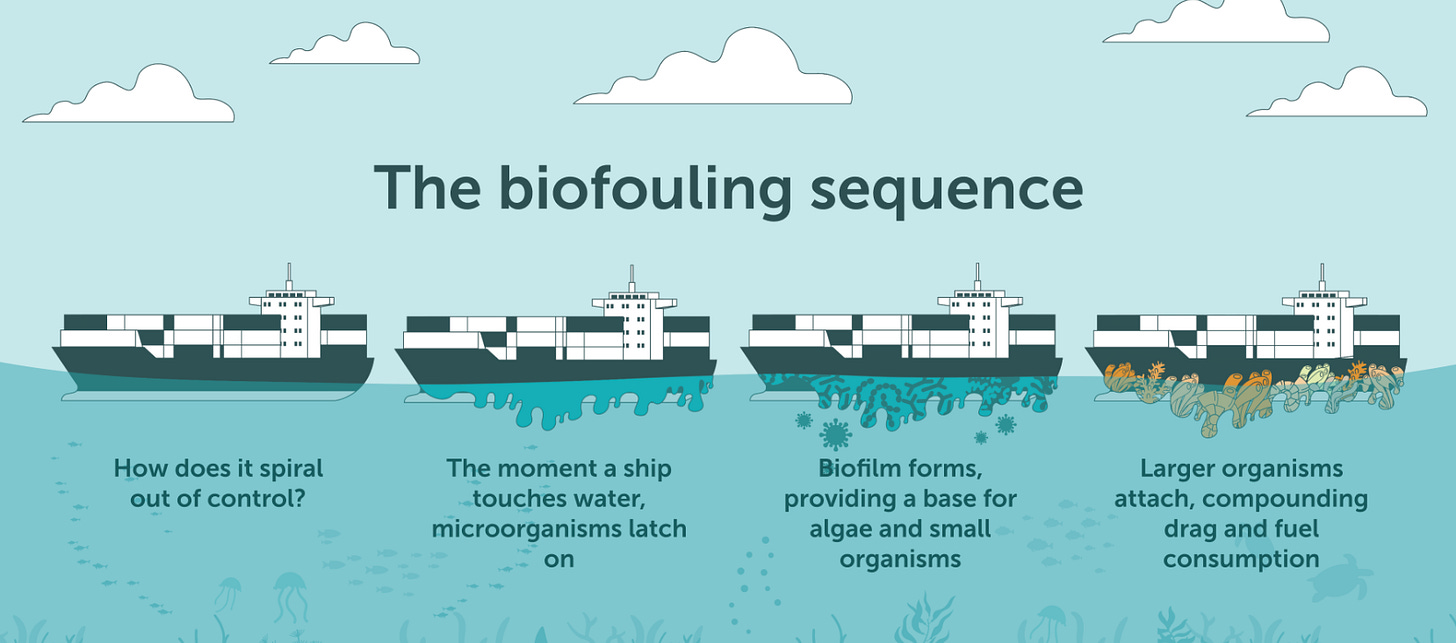
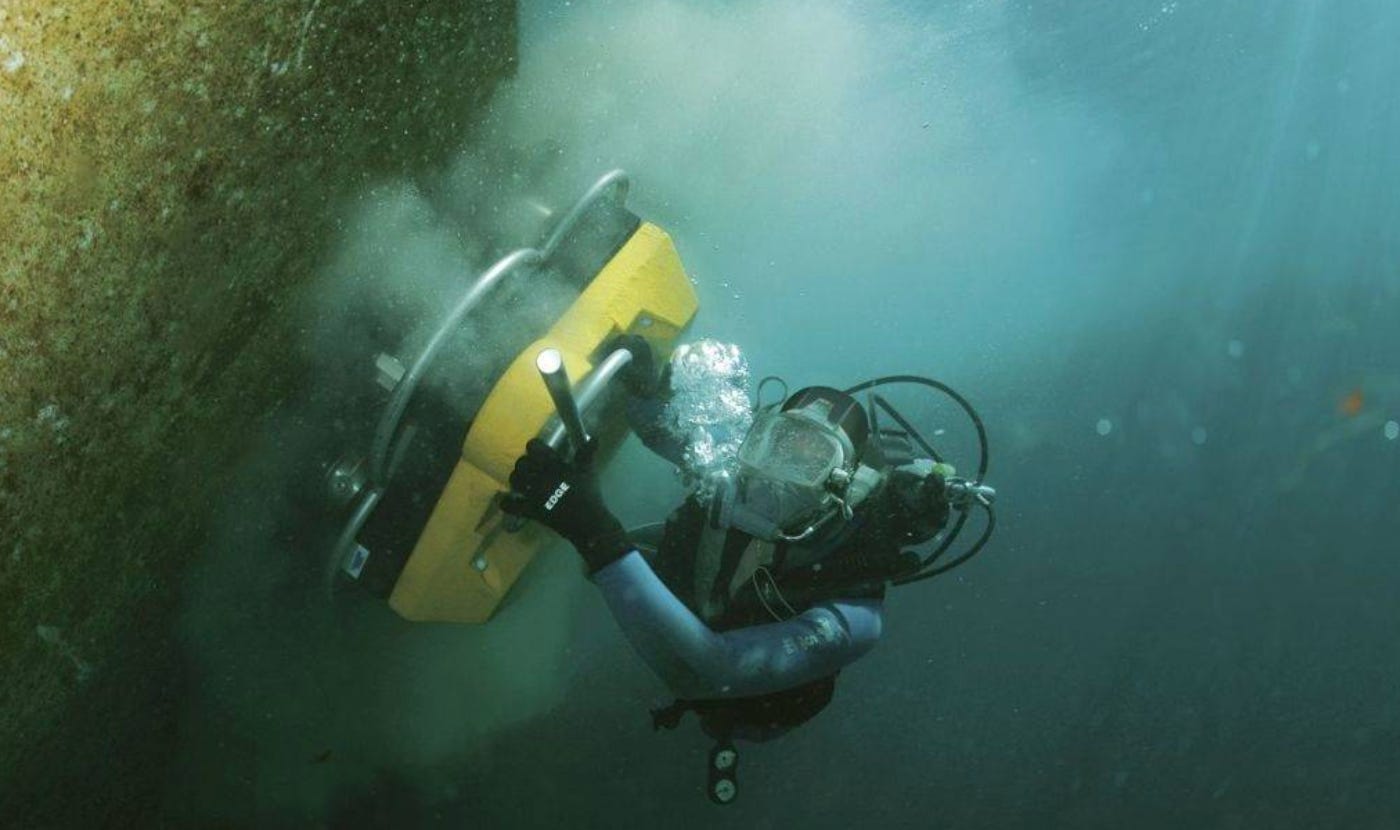
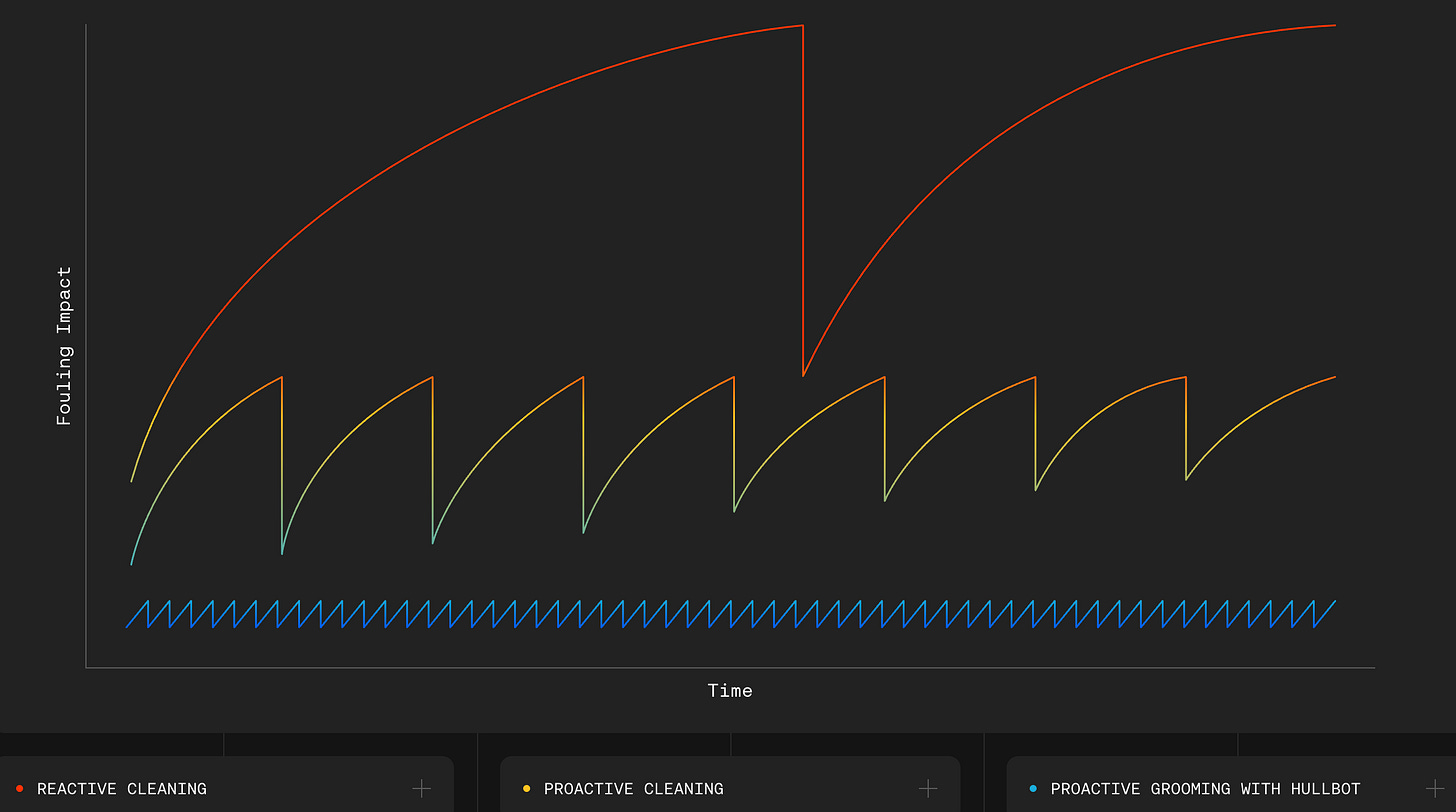

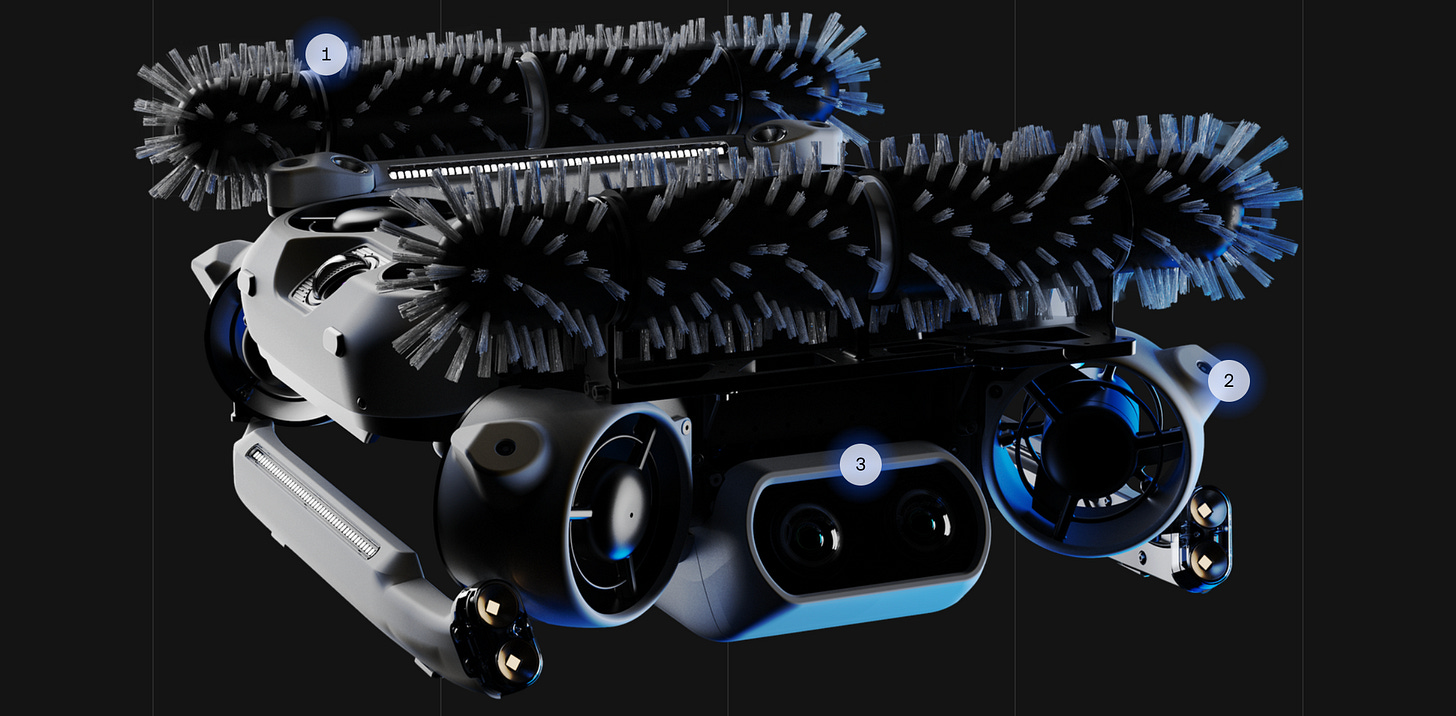
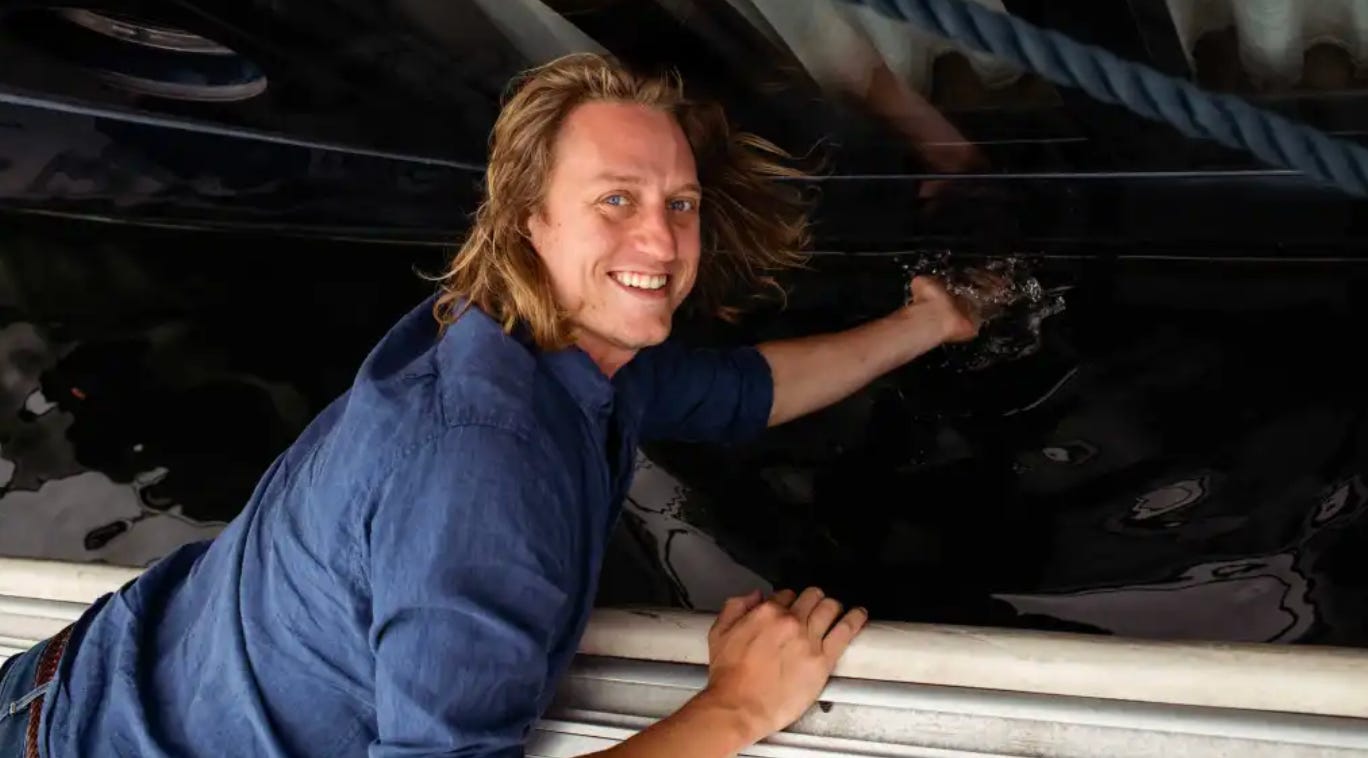
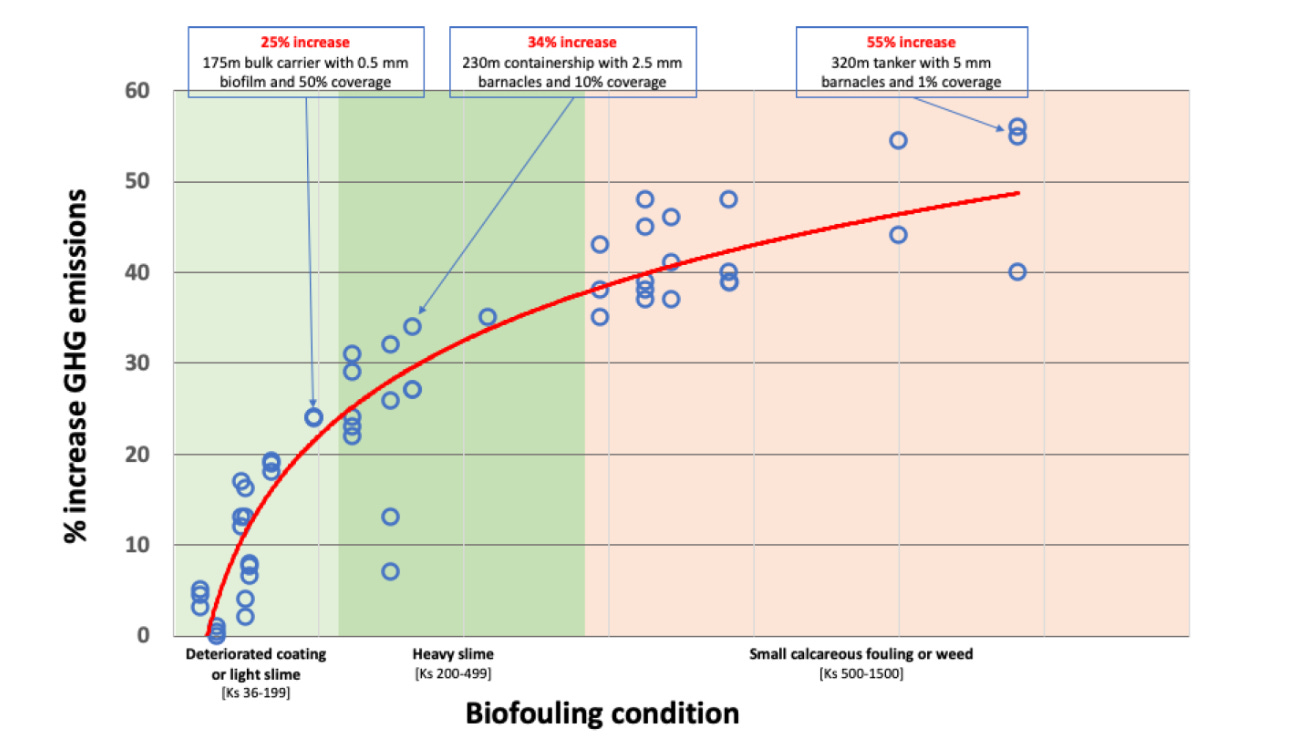
The preventative approach here is really smart. Addressing biofouling before heavy buildup happens not only reduces fuel costs but also eliminates the need for harsh chemicals and agressive cleaning methods. The 42% CAGR for this market makes sense given the regulatory prssure and the $30 billion annual cost of fouled hulls. Frequent cleaning over reactive maintenace is the kind of thinking that scales impact.
Dental hygiene for ships is such a funny way to put it together